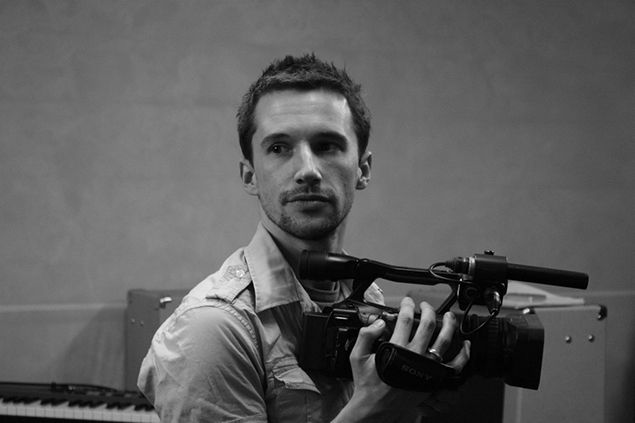Mat Whitecross is the British director of new movie Spike Island, shown as part of the London Film Festival this month and scheduled for general release in 2013.
He also helmed Ian Dury biopic Sex & Drugs & Rock & Roll, co-directed The Road to Guantanamo with Michael Winterbottom, and has a number of music videos in his portfolio, working with bands such as Coldplay and Take That.
Whitecross is also full of great advice for aspiring filmmakers, having started his film career as a boy, shooting video clips on a VHS videocamera his dad bought and working his way up from there.
Now he sits on the judging panel of the Virgin Media Shorts Awards, a short movie competition that aims to discover the best untapped talent in the UK, and he's taken the time to exclusively give Pocket-lint some tips on how to make your own short films.

The Mat Whitecross directed Spike Island will be released in the UK in 2013. It follows a fictional 1990 indie band on their journey to see The Stone Roses play their infamous Spike Island outdoor gig
Today, however, you don't need your dad's camcorder. You can easily start your film career using something you've already got in your pocket - a smartphone. So we asked Mat not for generic advice, but five tips on how to make a short movie using an iPhone (or other equivalent device). This is what he said.
Invest in the sound
"People tolerate bad image quality. You only have to watch fan footage horror films coming out, people are willing to put up with just about anything. But what they find harder to tolerate is bad sound.
"So even though you could film the whole thing on your phone, you still need to invest in some decent sound equipment to record it."
Think about what it is you're filming
"Another main thing to think about is that it has got to be a really great story. Come up with a really fantastic hook. Why should an audience watch your film shot on your phone rather than going off and seeing, you know, Transformers 4?"
Take advantage of your limitations
"Be brave and ambitious in what you do. I don't necessarily mean ambitious in terms of trying to make a science fiction film is your parents' bedroom, but what can you do that Hollywood, perhaps, can't?
"For example, If you're making a $100 million movie and you want to shoot in Leicester Square [in the centre of London], you either spend half the budget closing it off - in which case, it doesn't have any of the life or the reality of Leceister Square. Or you build Leicester Square from scratch and you go and shoot in a studio, in which case you still don't get the feeling of Leicester Square.
"But if you're shooting on your phone, you can go and shoot in Leicester Square tomorrow. For free.
"Take advantage of your limitations. Of course, there are advantages of having money but there are also disadvantages to doing it the official way."
Tell a story Hollywood can't tell
"What are the stories that they [professional filmmakers] can't tell that you can? Maybe it's something daring? Maybe it's about a taboo subject? Maybe it's about something they would love to tell but they're too worried that they'll lose money on it.
"Think about what the films are that inspire you that you don't normally get to see."
Think about your audience
"Lastly, think about how you're going to connect with an audience. Can you get it into film festivals? It's no good just making a short film, you need to think about how to get it out there.
"Short film festivals are normally quite specific about what they consider to be a 'short film'. A short film might be, such as in the case of the Virgin Media Shorts, a one-minute film. There's no point making a 15 or 23-minute short film as it can actually be quite hard to get it out there to an audience.
"Otherwise, send it out to a website. But think about how you will connect with that audience. The problem I and other filmmakers have had in the past is that you can make the best film in the world, but unless you connect with your audience, it's kind of pointless.
"That's the key thing really, you need to think how you are going to get this story out to an audience."
Mat Whitecross is judging Virgin Media Shorts, the UK’s largest short film competition. The Grand Prize winner will win up to £30,000 and an opportunity to work with the BFI. Visit www.virginmediashorts.co.uk for details.

